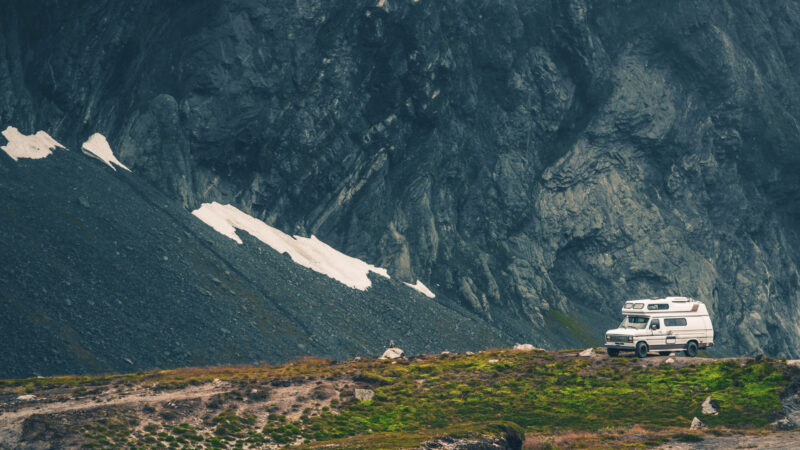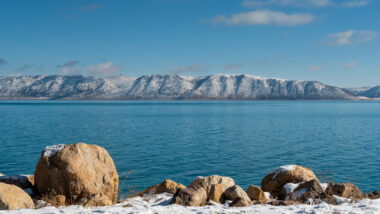Table of Contents Show
Traveling can be expensive, no matter how you do it. While RV life can be a fantastic way to cut expenses, that’s not always the case. If you’re not careful, it could cost you more than living in a sticks-and-bricks house.
Today, we’re sharing some proven cost-saving tips for traveling. These come straight from the RV community and can allow you to make unforgettable memories while living frugally.
Ready to start saving money? Let’s dive in!
RVer Asks Community for Tips to Save Money
Facebook is one of the first places many people turn to when they’ve got a question or need advice. That’s precisely what one RVer did recently. With almost three billion users, there’s a good chance someone on the platform can provide an answer.
In this particular situation, a full-time traveler asked their question to the 150,000 members of a massive Facebook group created for full-time RVers.
Their post stated, “Just curious, but what are some cost-saving tips/tricks you use to stay frugal?”
RV Community Doesn’t Disappoint
Thankfully, the community didn’t let her down. With almost 200 comments, the original poster got plenty of advice to help save a few bucks. As expected, some of the advice was better than the rest.
But the community provided some valuable tips. We were impressed by some of the cost-saving tactics people are using. It always amazes us how much wisdom and knowledge people are willing to share to help others.
Tips from RVers to Cut Traveling Costs
In the almost 200 comments, users repeated several tips and tricks. When you see these consistent themes, you know it’s good advice. We read through the comments and selected some of the best cost-saving travel tips to share.
Consider Workamping
Campground reservation fees can quickly add up, especially if you’re a full-time traveler. You can easily spend $1,000 or more each month. Workamping is a fantastic way to reduce these expenses.
RV parks and campgrounds need employees to help them run smoothly. They often hire camp hosts, maintenance workers, and office staff. Some of these gigs pay decently, especially considering the relaxed work environment.
The biggest perk for these positions is typically a free spot to camp. With thousands of campgrounds nationwide, some travelers move from one workamping position to the next. If you don’t mind a slower travel pace, this is an excellent option to pinch your pennies.

Buy Quality Gear
Another tip mentioned multiple times was to buy quality gear. While it may seem counter-intuitive, buying cheaper equipment is almost always more expensive in the long run.
We’re all for saving a few bucks when you can. However, some cheaper products can’t get the job done. If they do, they may not last, and you’ll need to replace them sooner or more often.
If you’ll buy the name brand eventually, you should do it from the start. We quickly learned the importance of not buying gear twice during our travels.
To avoid overspending, research the gear and equipment that you’ll buy. Look for reviews from experts and consumers to see the pros and cons of a product before making a purchase.
Avoid Eating Out
While many people enjoy experiencing the local cuisine while traveling, it can get expensive. You’ll want to avoid eating out to get the most out of every dollar.
For example, depending on the location, a hamburger with fries could cost you $10 to $16. On the other hand, you could prepare burgers and fries at home for your entire family at a fraction of the cost.
There’s nothing wrong with eating out now and then. However, you must be mindful of when and where you eat. Take advantage of happy hour or order from promotional menus that offer discounts.
Keep in Mind: Keep your food cold while on the road with the Best RV Refrigerator Fans!
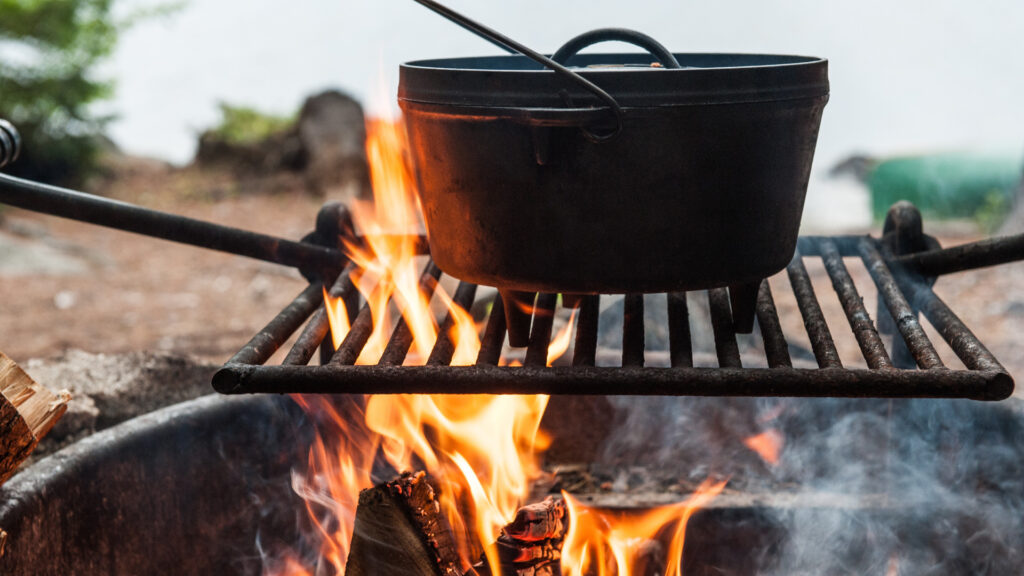
Camping Memberships
Camping memberships like Thousand Trails, Harvest Hosts, and Boondockers Welcome can be beneficial.
While these clubs come at a cost, the more you use them, the faster they can pay for themselves. By becoming a member, you can save hundreds, even thousands of dollars each year.
When selecting a membership, consider how often you’ll use it. For example, many of the Thousand Trails locations are along the coasts.
It may not be the best option for those exploring the country’s interior regions. Always check to ensure you’ll use the membership before signing up.
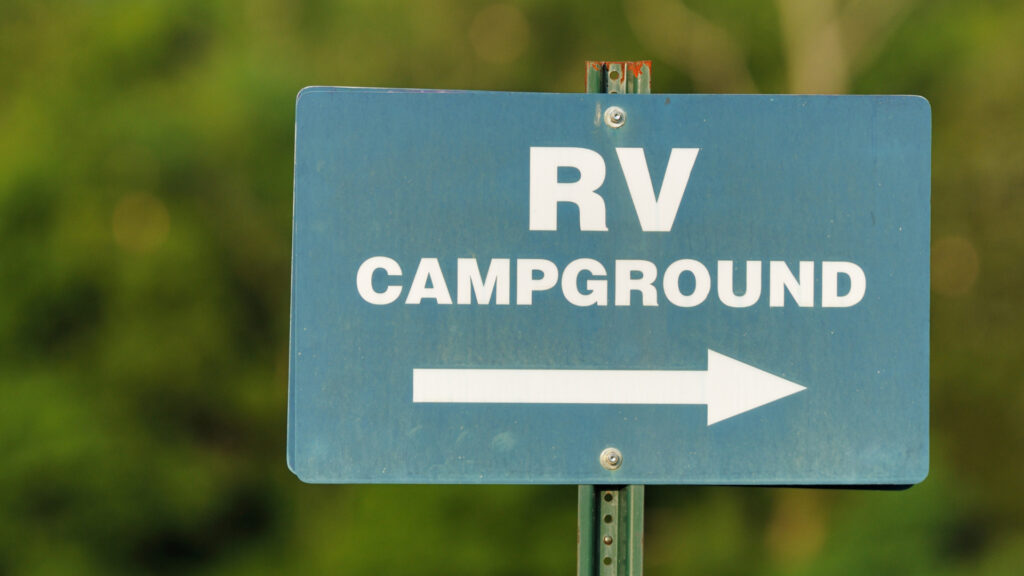
Stay Longer
Generally, the longer you stay in a spot, the cheaper it’ll be. Many RV parks and campgrounds offer discounted rates for extended stays. You can save hundreds of dollars each month by slowing your travel pace.
Additionally, you can save money on your reservation fees and other expenses. And you can reduce fuel and maintenance expenses by staying in one location longer.
We love taking the opportunity to slow down and explore an area. This allows you to experience more than just the touristy hot spots. You can get a feel for a location and what it’s like for locals.
Consider Boondocking
Many choose to boondock, with campground reservations becoming more expensive and harder to acquire. This camping style means staying on public lands that allow camping. Most of these spots are free, but some require an inexpensive permit.
You should know that you’ll need to have a plan for power and come with a supply of water.
You’re responsible for cleaning up trash and disposing of all waste at the end of your trip. This budget-friendly price and increased space and privacy appeal to many.
Unfortunately, a majority of these locations lie out west. If your adventures are east of the Mississippi River, it takes work to find spots to boondock. Are they available? Sure. However, they’re less common compared to the West.
Keep in Mind: Do you have a big RV? Before you try boondocking, read these Boondocking Tips For A Big RV
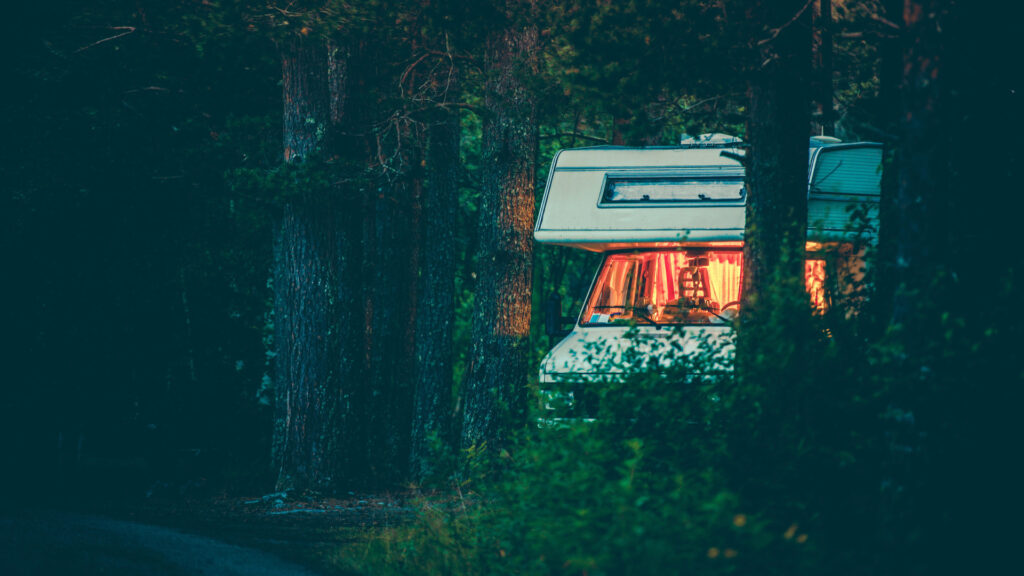
Create a Budget
The best way to save money is to make a budget. You need to keep track of every penny that comes in and goes out of your bank account.
Keeping track of your expenses can help you avoid frivolous and unnecessary costs. You may not realize how much money you spend on your trips for expensive coffee or other luxuries.
After creating your budget, make sure you stick to it. It won’t do you any good if you don’t change how you spend your money.
If you’re a couple, hold each other accountable for spending. Be on the same page and have the same goals.
Save Money While RVing
It’s possible to save money while traveling and RVing. However, it can be easy to overspend and slowly get in over your head.
You may have to sacrifice and pass on some experiences or fancy restaurants during your adventures. If this happens to you, don’t let it bum you out. You now have an excuse to return and explore an area again later.
Do you have any other cost-saving tips for travelers?




